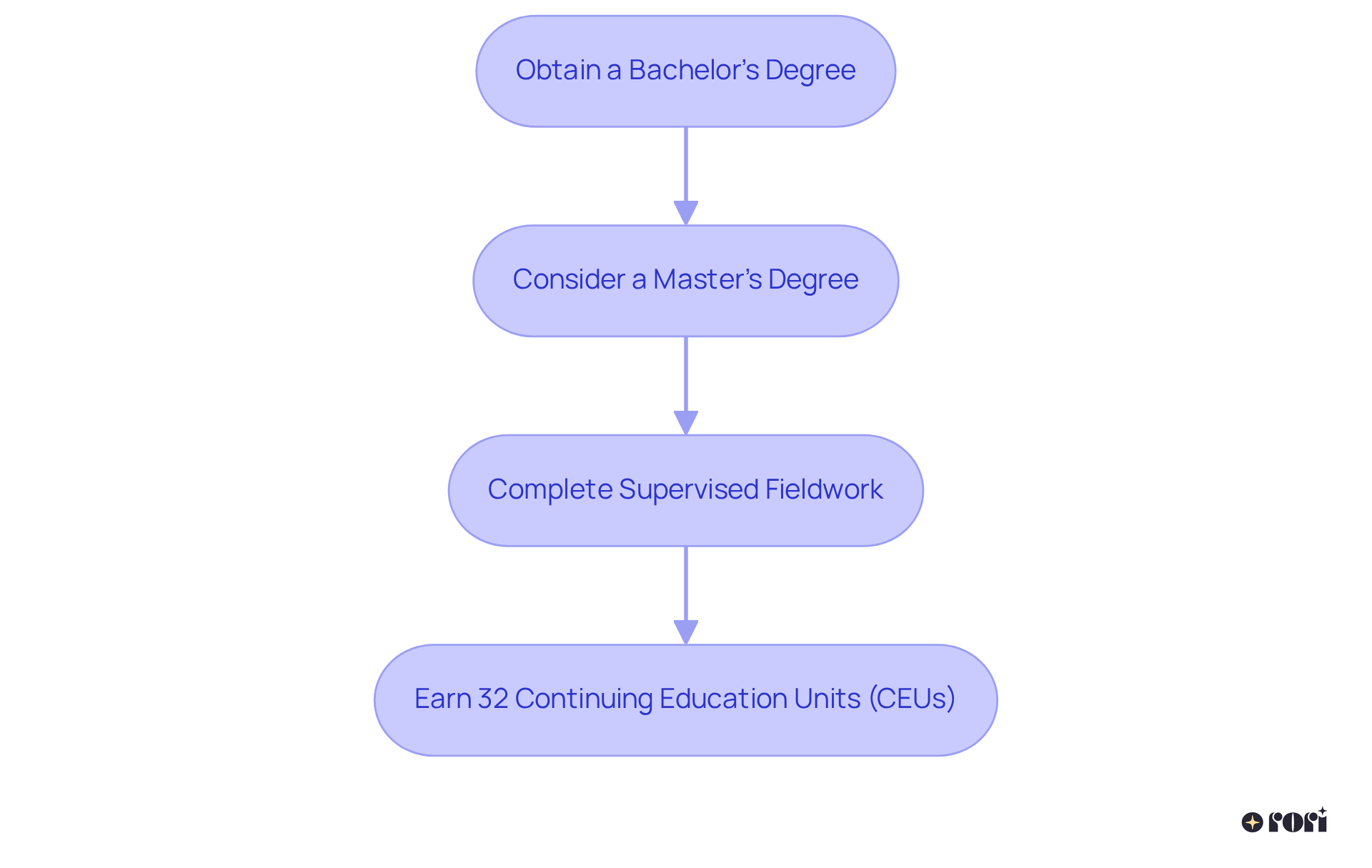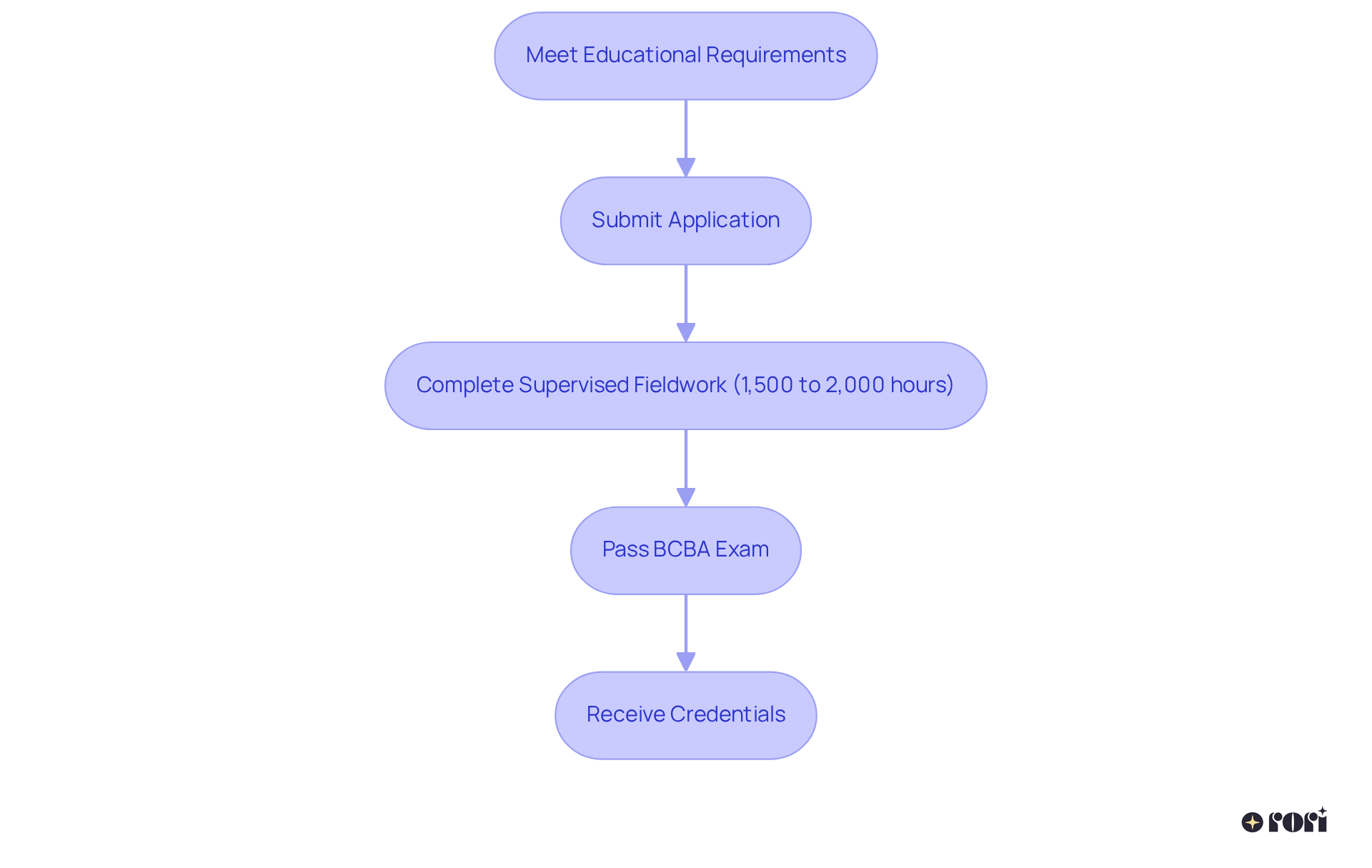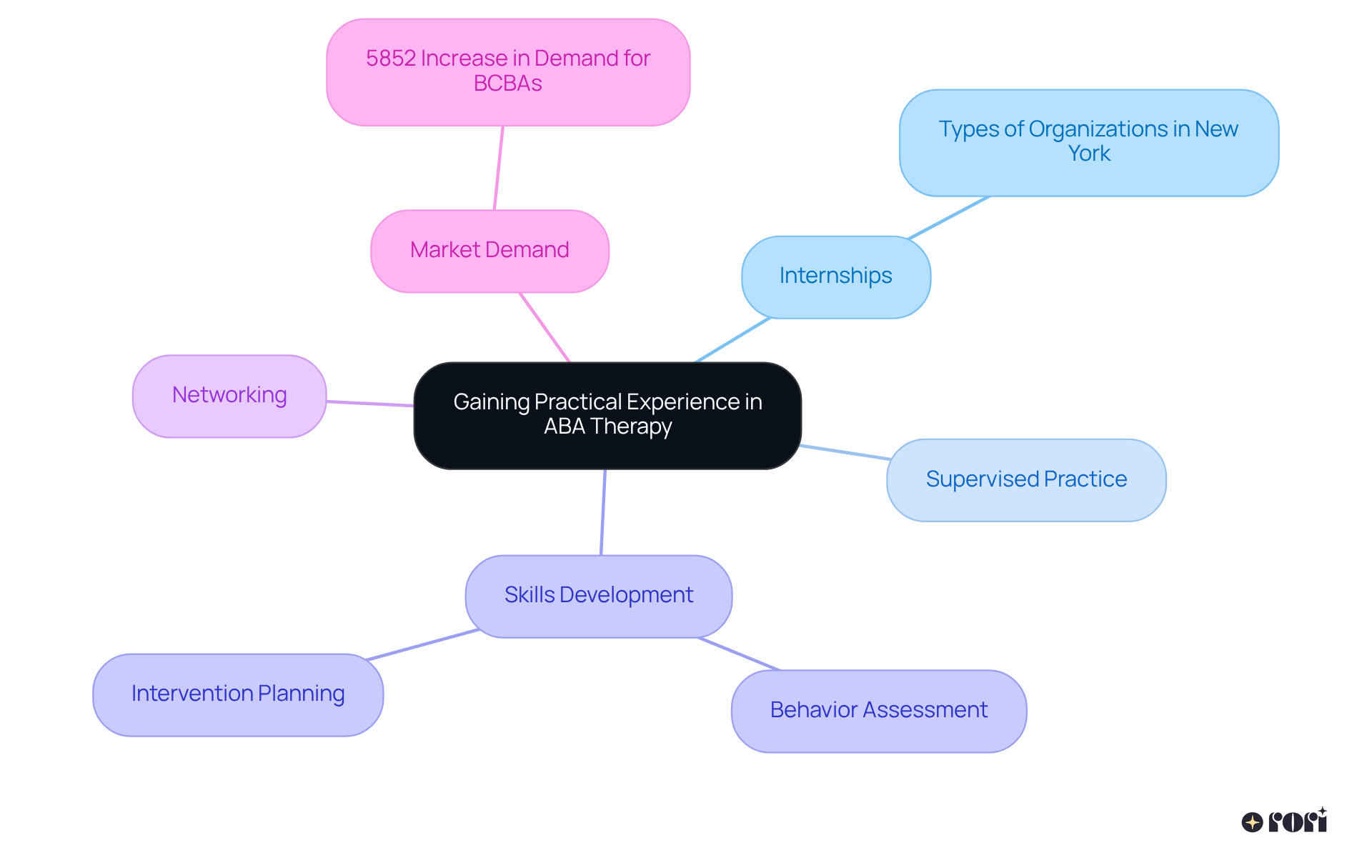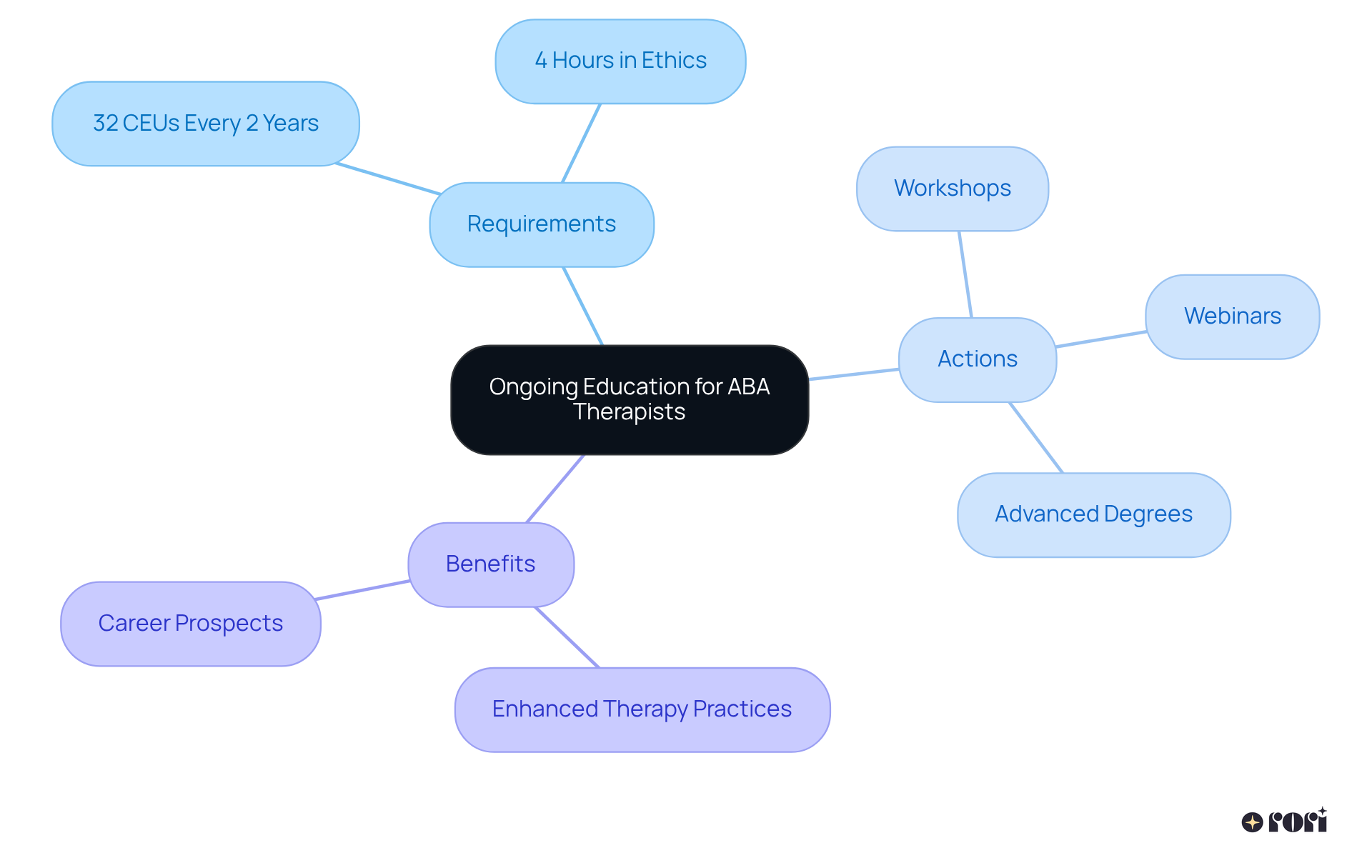If you're considering becoming an ABA therapist in New Jersey, here's what you need to know!
It’s important to realize that meeting these educational and certification requirements is just the beginning. Engaging in continuing education is key to building a successful career in ABA therapy.
So, let’s explore this journey together and see how we can support you every step of the way!
The demand for Applied Behavior Analysis (ABA) therapists in New Jersey is really on the rise! 🎉 This surge is fueled by a growing recognition of how important behavioral health is. For those aspiring to join this field, there’s a wonderful opportunity to make a meaningful difference in the lives of individuals with autism and other developmental disorders.
However, the journey to becoming a qualified ABA therapist can feel a bit overwhelming at times. There are specific educational and certification requirements to navigate. So, what are the essential steps to embark on this rewarding career? And how can you ensure you're fully prepared to succeed in such an important role? Let’s explore this together!
The journey of how to become an ABA therapist in NJ is an exciting one! First things first, you'll need at least a bachelor's degree in psychology, education, or a related field. Many programs even offer coursework in behavior analysis, which is super important for building a solid foundation in this field.
If you're really serious about it, pursuing a master's degree in applied behavior analysis (ABA) or something similar is a great idea! It not only boosts your job prospects but is often a requirement for qualification. According to the Behavior Analyst Certification Board (BACB), you'll need to meet certain educational prerequisites, including some supervised fieldwork, to qualify.
Oh, and don't forget—if you're practicing in New Jersey, behavior analysts are required to complete 32 continuing education units (CEUs) every two years. This helps keep your credentials up-to-date and ensures you're in the loop with the latest advancements in the field. Understanding these qualifications can really help you navigate how to become an ABA therapist in NJ. Let’s explore this together!

The first step in understanding how to become an ABA therapist in NJ is to meet the educational requirements. Generally, this means obtaining a master's degree in behavior analysis or a related field. Once you've earned your degree, you'll need to pass the Board Certified Behavior Analyst (BCBA) exam, which is administered by the Behavior Analyst Certification Board (BACB).
This process starts with submitting an application that verifies your educational background and supervised experience. It's important to know that candidates are required to complete between 1,500 to 2,000 hours of fieldwork under the supervision of a qualified BCBA. This hands-on experience is essential for gaining practical skills in the field.
After successfully passing the BCBA exam, you'll receive your credentials, which will guide you on how to become an ABA therapist in NJ. To boost your chances of success, consider joining study groups or using specialized exam preparation resources. These can really help improve your understanding of the material and give you a confidence boost. Let’s explore this journey together, and remember, we’re here to help you every step of the way!

If you're looking to gain practical experience in ABA therapy, why not actively seek out internships or volunteer opportunities at organizations that specialize in this field? There are plenty of places in New York that offer tailored internships for aspiring ABA therapists. You'll have the chance to work closely under the guidance of a licensed behavior analyst, which is invaluable.
This hands-on experience is essential, not just for meeting qualification standards, but also for honing your skills in behavior assessment, intervention planning, and implementation. Did you know that the demand for Board Certified Behavior Analysts (BCBAs) has skyrocketed by an incredible 5852% since 2010? This really highlights the growing need for qualified professionals in this area.
Networking with established professionals can also open doors to potential internship opportunities. Building those connections can enhance your career trajectory in ways you might not expect! Engaging in supervised practice enriches your understanding of ABA principles and equips you with the practical skills necessary to excel in this rewarding field. So, let’s explore this together and take the next step toward your future in ABA therapy!

Ongoing education is so important for keeping your credentials as an ABA therapist in New York! Every two years, you need to complete 32 continuing education units (CEUs), which must include at least 4 hours in ethics. Engaging in workshops, webinars, and conferences that showcase the latest advancements in ABA therapy is crucial for staying up-to-date. Organizations like the New Jersey Association for Behavior Analysis (NJABA) offer fantastic resources and training sessions tailored to meet these needs.
Plus, seeking specialized qualifications or even advanced degrees can really boost your knowledge and career prospects! Statistics show that many ABA therapists in New Jersey actively pursue CEUs, which is essential in understanding how to become an ABA therapist in NJ, reflecting a strong commitment to professional development that ultimately enhances therapy practices. By prioritizing ongoing education, you not only meet certification requirements but also contribute to better outcomes for the children and families you serve. Let’s explore this together and see how we can support each other in this journey!

Becoming an ABA therapist in New Jersey is truly a rewarding journey, filled with dedication, education, and ongoing growth. It all starts with getting the right qualifications—think of a bachelor's degree as your foundation, and a master's in behavior analysis or a related field as that extra boost. After that, the next step is navigating the certification process, which includes passing the BCBA exam and completing essential fieldwork. This ensures you're ready to provide effective therapy!
Throughout this journey, there are key steps to consider:
Each of these elements enhances your skills and knowledge, helping you stay competent and effective as an ABA therapist. Plus, with the growing demand for qualified professionals, these qualifications and experiences are more important than ever!
Ultimately, becoming an ABA therapist is about more than just ticking off requirements; it's about making a real difference in the lives of individuals and families. By embracing ongoing education and seeking opportunities for professional growth, you not only meet certification requirements but also enrich the therapeutic services you provide. This commitment to excellence is what will help you thrive in the dynamic world of ABA therapy right here in New Jersey. Let’s explore this together!
What is the minimum educational requirement to become an ABA therapist in New Jersey?
The minimum requirement is a bachelor's degree in psychology, education, or a related field.
Is pursuing a master's degree beneficial for becoming an ABA therapist?
Yes, pursuing a master's degree in applied behavior analysis (ABA) or a similar field is highly beneficial and often a requirement for qualification.
What additional educational prerequisites are needed to qualify as an ABA therapist?
You need to meet certain educational prerequisites set by the Behavior Analyst Certification Board (BACB), which include completing supervised fieldwork.
Are there any continuing education requirements for ABA therapists in New Jersey?
Yes, behavior analysts practicing in New Jersey are required to complete 32 continuing education units (CEUs) every two years.
Why is it important to understand the qualifications for ABA therapists?
Understanding these qualifications helps individuals navigate the process of becoming an ABA therapist in New Jersey effectively.